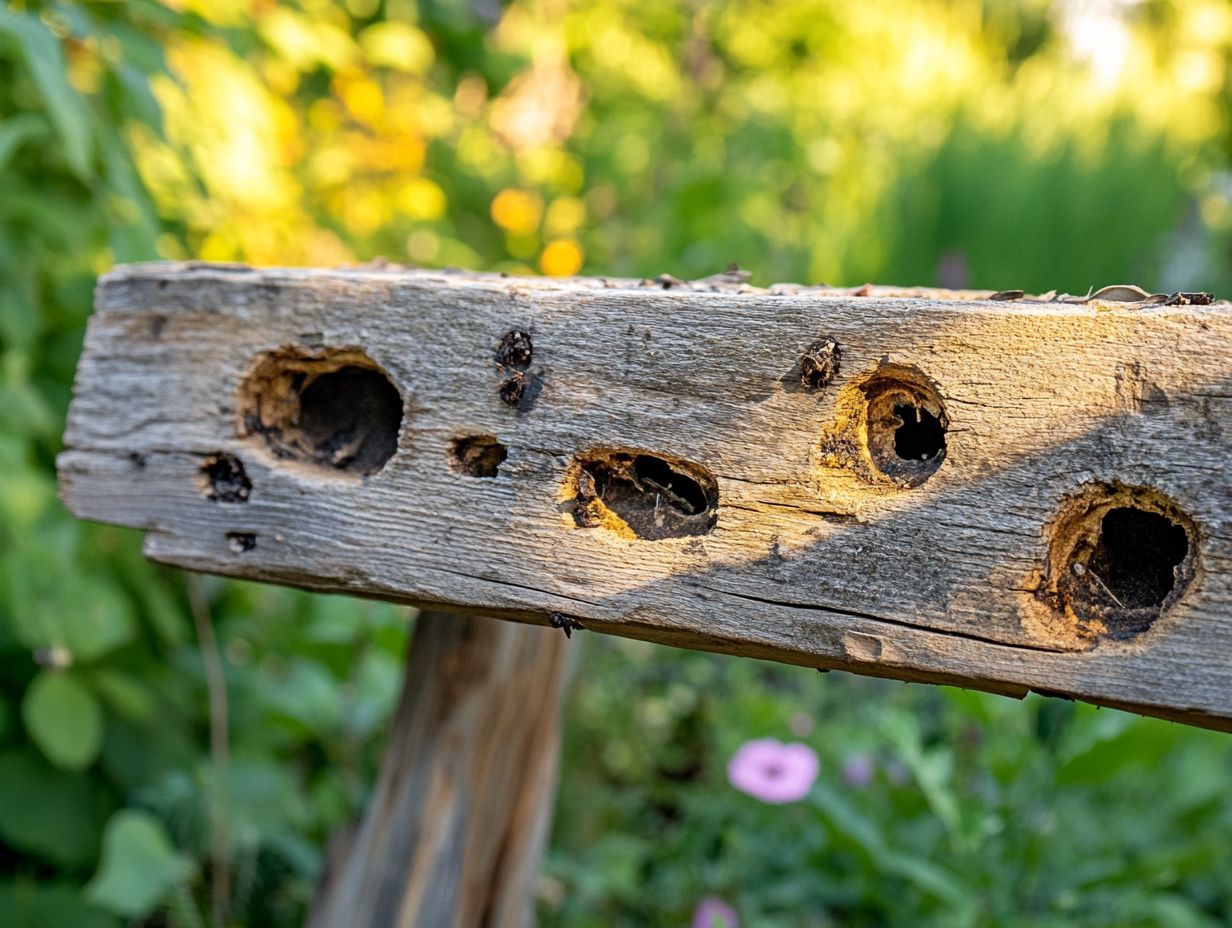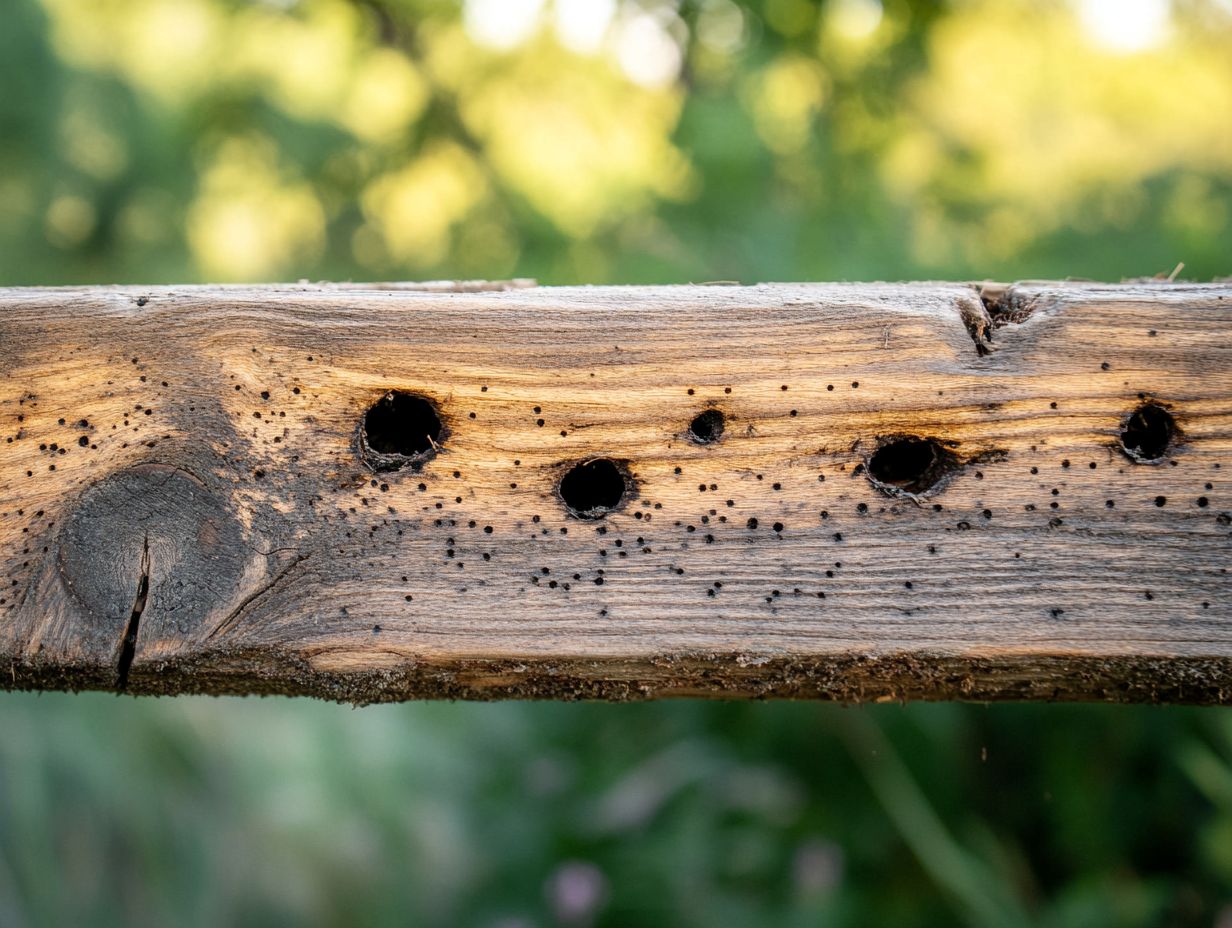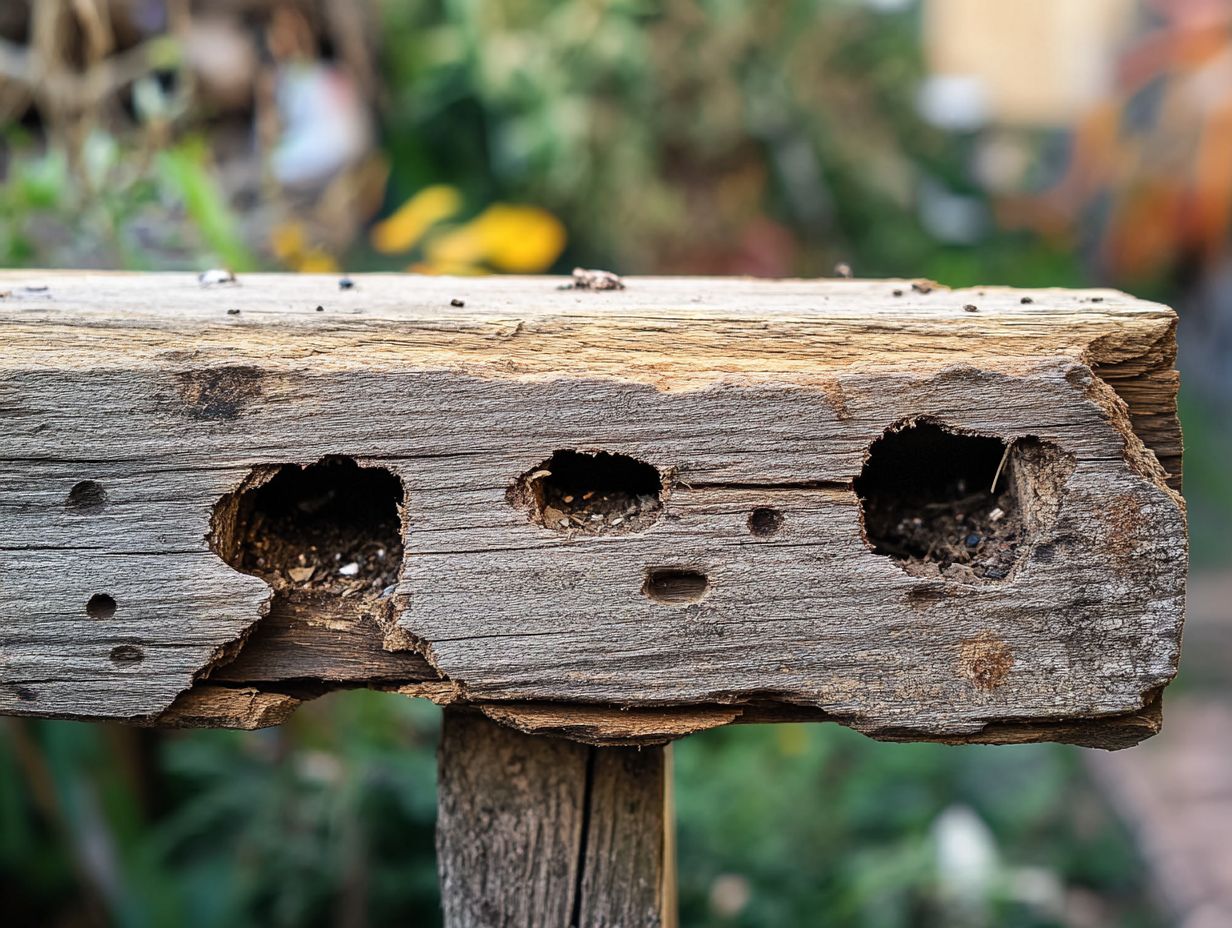The Long-Term Effects of Pest Infestation
Pest infestations can quietly wreak havoc in your home or business, leading to serious health risks and costly damage.
Understanding the various types of pests and their potential long-term impacts is essential if you want to safeguard your property and well-being.
Let s explore the health risks, economic costs, and how to manage pests effectively. It also highlights when it s time to bring in the experts to ensure your space remains pest-free.
Dive in to learn how to protect your health and property from unwanted guests.
Contents
- Key Takeaways:
- The Impact of Pest Infestation
- Common Types of Pests
- Long-Term Effects on Health and Emotional Well-Being
- Long-Term Effects on Property
- Preventing and Managing Pest Infestation
- Seeking Professional Help
- Frequently Asked Questions
- You may wonder, what are the long-term effects of pest infestation on a property?
- You might also ask, can pest infestation lead to long-term health problems?
- You may be curious, how can pest infestations affect the value of a property?
- Are there any long-term financial impacts of pest infestation?
- What are some signs of long-term pest infestation?
- How can I prevent long-term effects of pest infestation?
Key Takeaways:

- Pest infestation can have serious health and safety concerns, causing potential diseases and health risks for individuals and families.
- Common types of pests can cause economic and property damage, leading to structural damage and high repair costs in the long run.
- Preventing and managing pest infestation requires effective methods and seeking professional help when necessary. Early intervention can save time, money, and potential health risks.
The Impact of Pest Infestation
Pest infestations can greatly impact both your physical environment and emotional well-being. When unwelcome visitors like cockroaches, bed bugs, and rodents invade your space, they don t just threaten your health; they also bring anxiety and stress into your life.
As these pests become more noticeable, the psychological toll can escalate, potentially leading to severe mental health challenges such as anxiety disorders and insomnia. Therefore, grasping the wider implications of pest control is crucial for maintaining a clean home and safeguarding your emotional health.
Health and Safety Concerns
Health and safety concerns surrounding pest infestations are serious and multifaceted, particularly when it comes to pests like cockroaches, bed bugs, and rodents.
These pests also threaten your well-being by spreading allergens and diseases think of how cockroach droppings can exacerbate asthma or how rodent droppings can potentially transmit hantavirus. They contribute to significant stress as well. The mere presence of these infestations can heighten your anxiety, as you become preoccupied with fears of contamination or illness.
You may find yourself engaging in compulsive behaviors, like incessantly cleaning or checking for signs of pests, which only adds to your stress levels.
That s why it s crucial to tackle these issues promptly and effectively with comprehensive pest control measures, ensuring you create a healthier and more comfortable living environment.
Economic and Property Damage
Pest infestations can inflict considerable economic and property damage, impacting both homeowners and landlords significantly.
When destructive pests like termites invade, they can undermine the very structure of your building, leading to costly repairs and potential safety hazards. But it doesn’t stop there; the financial fallout continues with expenses related to hiring exterminators, implementing preventative measures, and dealing with the aftermath of an infestation.
While these costs may seem daunting at first, investing in effective pest management strategies is often a prudent long-term choice. This approach not only addresses immediate threats but also protects your property value and helps you avoid hefty repair bills in the future.
Common Types of Pests
Grasping the common types of pests is essential for effectively managing and preventing infestations that can disrupt your daily life and pose significant health risks. Each pest type be it cockroaches, bed bugs, rodents, or termites presents its own unique challenges.
For example, cockroaches are notorious for spreading disease, while bed bugs can inflict profound emotional distress due to their unsanitary associations. Recognizing these pests early is crucial for implementing effective pest control strategies.
Identifying and Understanding Different Pests and Their Health Risks

Identifying pests is crucial for effective pest control. Recognizing the signs of common pests like cockroaches, bed bugs, and rodents helps you take prompt action.
Cockroaches often leave droppings or a musty odor. Bed bugs show up as itchy bites and small bloodstains on your sheets.
Rodents gnaw through wires or wood, and their nests hide in corners. Each pest disrupts daily life and poses health risks, including allergies and disease transmission.
Effective pest management involves preventive measures to keep these threats at bay.
Long-Term Effects on Health and Emotional Well-Being
Pest infestations can significantly impact your health and emotional stability. Prolonged exposure to pests like bed bugs and rodents can lead to serious health issues.
These include sleep disturbances and psychological challenges such as PTSD and anxiety. The stress of dealing with infestations highlights the need for effective pest management.
Potential Diseases and Health Risks
Pests can transmit diseases, posing risks to you and your community. For example, rodents spread Salmonella, causing severe gastrointestinal illness.
Mosquitoes carry the West Nile Virus, which can lead to neurological complications. These health risks create an urgent need for pest control measures.
Addressing pest issues proactively creates a healthier environment. It reduces disease outbreaks and protects vulnerable populations like children and the elderly.
Long-Term Effects on Property
Pest infestations can cause extensive property damage, leading to costly repairs. For instance, termites can compromise the structural integrity of your home.
The presence of pests can decrease your property’s value and marketability. Thus, effective pest management is critical for preserving your property’s standards.
Structural Damage and Repair Costs
Pest infestations can cause severe structural damage, leading to unexpected repair costs. This damage often shows as weakened beams, compromised foundations, and crumbling drywall.
Ignoring issues like termites can lead to escalating degradation and financial burdens. Emergency repairs can exceed regular maintenance costs.
By adopting proactive pest control and maintenance strategies, you can effectively mitigate these risks. Ensure your living spaces remain safe, sound, and free from unwelcome invaders.
Preventing and Managing Pest Infestation

Preventing and managing pest infestations is essential for safeguarding your emotional well-being and maintaining the cleanliness of your home. With effective pest control strategies at your disposal, you can significantly reduce the presence of unwelcome guests like cockroaches and bed bugs. This helps minimize health risks and potential property damage.
By embracing proactive ways to control pests, you can create a safer and cleaner living environment, ensuring peace of mind in your daily life.
Effective Prevention and Control Methods
Implementing effective prevention and control methods is crucial for minimizing the risk of pest infestations in your home or business.
To start, focus on sealing potential entry points think of those cracks around windows or doors as unwelcome doorways for pests. Maintaining a clean environment is equally important; regular cleaning routines that eliminate food residues and clutter will discourage pests from moving in.
Enhancing your defenses can involve using targeted pest control products, such as traps or safe pest repellents, which add an extra layer of protection. If an infestation escalates, it s wise to consult professional exterminators. They can deploy tailored strategies to address your specific pest issues, ensuring effective elimination and long-term prevention.
Seeking Professional Help
It s vital to know when to call in the experts for effective pest management and to protect your health. These professionals have the right skills and tools to tackle substantial infestations of pests like cockroaches, rodents, and bed bugs, challenges that often exceed the reach of DIY solutions.
By identifying the signs of a serious pest problem, you empower yourself to make prompt and informed decisions about pest control, ensuring a safer and more comfortable environment.
When to Call in Pest Control Experts
Knowing when to engage pest control experts is a crucial decision that can protect your property from further damage and mitigate health risks tied to severe infestations.
You might notice signs like droppings, gnawed materials, or that unsettling feeling of insects invading your space. When your DIY efforts fall short, it s clear that a more advanced approach is needed.
Pests such as termites or bed bugs aren t just nuisances; they can cause significant structural damage or provoke allergies, highlighting the importance of acting quickly. Don’t wait until it s too late!
The complexity of certain infestations often surpasses what standard methods can effectively tackle. Professional exterminators have extensive expertise and specialized tools, giving them the power to address these challenging issues with precision and provide lasting relief.
Frequently Asked Questions
You may wonder, what are the long-term effects of pest infestation on a property?

The long-term effects of pest infestation can include structural damage, health risks, and financial costs. Pests can damage the foundation, walls, and wiring of a property, leading to costly repairs. Additionally, pests can carry diseases and trigger allergies, putting the health of occupants at risk.
You might also ask, can pest infestation lead to long-term health problems?
Yes, pest infestation can lead to long-term health issues. Pests like rodents, cockroaches, and bed bugs can carry diseases and cause allergies, resulting in respiratory problems, skin irritations, and other health concerns. Addressing pest infestations promptly is crucial to avoid these long-term health consequences.
You may be curious, how can pest infestations affect the value of a property?
Pest infestations can significantly decrease a property’s value. Structural damage caused by pests can lead to expensive repairs, lowering the overall value. Furthermore, the presence of pests can deter potential buyers or renters, making it more challenging to sell or lease a property.
Are there any long-term financial impacts of pest infestation?
Yes, pest infestations can lead to long-term financial issues. Besides repair costs for damage, pest control can be expensive.
If left unchecked, pests can increase your utility bills by damaging insulation and wiring. Properties with past pest issues often face higher insurance premiums.
What are some signs of long-term pest infestation?
Signs include visible property damage, like gnaw marks or droppings. A persistent pest problem despite extermination efforts is also a warning sign.
Pests may leave a foul odor, and residents might experience unexplained health issues. Act quickly on these signs to protect your home and health!
How can I prevent long-term effects of pest infestation?
Regularly inspect and maintain your property for signs of pests. Keep your home clean and free of clutter.
Seal any cracks or openings and address moisture issues. Consider hiring pest control services for regular inspections and treatments to prevent infestations.






